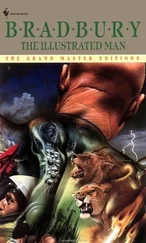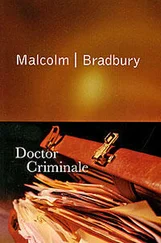Malcolm Bradbury - The History Man
Здесь есть возможность читать онлайн «Malcolm Bradbury - The History Man» весь текст электронной книги совершенно бесплатно (целиком полную версию без сокращений). В некоторых случаях можно слушать аудио, скачать через торрент в формате fb2 и присутствует краткое содержание. Жанр: Современная проза, на английском языке. Описание произведения, (предисловие) а так же отзывы посетителей доступны на портале библиотеки ЛибКат.
- Название:The History Man
- Автор:
- Жанр:
- Год:неизвестен
- ISBN:нет данных
- Рейтинг книги:3 / 5. Голосов: 1
-
Избранное:Добавить в избранное
- Отзывы:
-
Ваша оценка:
- 60
- 1
- 2
- 3
- 4
- 5
The History Man: краткое содержание, описание и аннотация
Предлагаем к чтению аннотацию, описание, краткое содержание или предисловие (зависит от того, что написал сам автор книги «The History Man»). Если вы не нашли необходимую информацию о книге — напишите в комментариях, мы постараемся отыскать её.
The History Man — читать онлайн бесплатно полную книгу (весь текст) целиком
Ниже представлен текст книги, разбитый по страницам. Система сохранения места последней прочитанной страницы, позволяет с удобством читать онлайн бесплатно книгу «The History Man», без необходимости каждый раз заново искать на чём Вы остановились. Поставьте закладку, и сможете в любой момент перейти на страницу, на которой закончили чтение.
Интервал:
Закладка:
But in the meantime they go on, together and separately. They have been married now for twelve years, though you wouldn't think it, to look at them, to see them, to hear them in action. They have produced, by prophylaxis, two children, bright, modern creatures, both now of school age, of whom they are reasonably fond. They live together in a tall, thin, stuccoed Georgian house, which is in a slum-clearance area right in the middle of the town. It is an ideal situation for the Kirks, close to the real social problems, the beach, the radical bookshop, the family planning clinic, the macrobiotic food store, the welfare offices, the high-rise council flats, and the rapid ninety minute electric train service up to London, close, in short, to the stuff of ongoing life. From time to time, being passionate, liberated, consciousness-conscious people, they live apart, or with someone else, for a spell. But these always seem mature, well-thought interludes and infidelities, expressing their own separate individuality without disturbing their common Kirkness, and so somehow they always manage to be back together again within the month, and hence to seem, in the eyes of their friends, and presumably in their own eyes as well, a settled, but not an absurdly settled, couple. For the Kirks always generate excitement, curiosity. They are experimental people, intimates with change and liberation and history, and they are always busy and always going.
They look the way new people do look, this autumn. Howard, small, dark, and compact, has long hair, though not quite so long as it was last year, and a Zapata moustache; he wears neat white sweatshirts, with rousing symbols on the front, like clenched fists, and hairy loose waistcoats, and pyjama-style blue jeans. Barbara, who is big and has frizzled yellow hair, wears green eyeshadow, and clown-white makeup, and long caftan dresses, and no bra, so that her stubby nipples show through the light cotton. Howard's two books being now staple radical documents in that expanding market, their jeans and caftans are rather more expensive than those of most of the people they know. But it is invisible expense, inconspicuous unconsumption, and it creates no distances and makes them no enemies, except for the enemies who were always their enemies. The Kirks are very attractive, very buoyant, very aggressive people, and, even if you dislike or distrust them, or are disturbed by them (and they mean to be disturbing), very good company.
After the instinct about the party comes to them, an instinct so harmonious that neither one of them can now remember which of the two of them thought of it first, the Kirks go down to Howard's study, which is in the basement of their Georgian terrace house, and pour themselves some wine, and start to work on what Howard calls 'the loose frame of reference surrounding this encounter'. There are two studies in the Kirk house, though it is a very unstructured house, the opposite of the kind of thing people call a home: Howard's, downstairs, where he writes books, and Barbara's, upstairs, where she means to. Howard's study is lined with bookshelves; the bookshelves are filled with sociology texts, books about encounter groups and interpersonal relations, new probes into radical experience by American visionaries, basic political manifestos. Under the window is a white desk, with a second telephone on it; on the desk lies a fluttering pile of paper, the typescript of the book-which is called The Defeat of Privacy - that Howard has been working on over the recess and withdrawal of the summer, the recess that is now ending. The grilled window over the desk looks out onto a basement yard, with an untended plant tub in it; you must look upwards to see the railings onto the street. Back through the grilled windows comes in the sun that has been shining all day, a weak, late-year sun that slants in and composes square shapes on the bookcases and the walls. On the walls, between the bookcases, there are African masks, faces in black and dark brown carved wood set against white emulsion. The Kirks, in their bright clothes, sit beneath the masks, in two low white canvas chairs. They each hold their glass of red wine, and they look at each other, and they begin to talk the party into existence. They name names, they plan food and drink.
After a while Barbara rises, and goes to the bottom of the stairs. 'Anne,' she shouts up into the hall, 'Howard and I are planning a party. I wonder if you'd give the children a bath?'
'Fine, Mrs Kirk,' shouts Anne Petty, the student who has been living with them over the summer, having fallen out so severely with her parents she cannot go home, 'I'll see to it.'
'I don't know how I'd manage without Anne,' says Barbara, sitting down in the canvas chair again.
'Beamishes,' says Howard, 'can we stand the Beamishes?'
'We've not seen them all summer,' says Barbara, 'We've not seen anyone all summer.' And that is true, for to the Kirks the summer represents the low point of the year, the phase of social neglect. Howard has finished his book-it flutters at them on the desktop-but creation is a lonely and introverted activity; he is in that flat state of literary post coitum that affects those who spend too much time with their own lonely structures and plots; he needs to be back into, to intervene in, the larger, grander, more splendid plots that are plotted by history. And Barbara has been domestic, and domesticity is an evasion to people like the Kirks; the self has bigger business to perform. But their party is a party for the world, too; they construct it solemnly. Howard is a theoretician of sociability; he debates about what he calls 'relevant forms of interaction', and the parameters of the encounter. Barbara performs the antithetical role, and thinks of persons and faces, not because men are abstract and women emotional-that is the sort of role-designation both of them would deny-but because someone has to keep abreast of who likes whom, and who can't be in the same room as whom, and who is bedding whom, and who ought sooner or later to bed whom, if you want to have really good parties. And the Kirks always do have good parties, have a talent for giving them. They are unstructured parties, frames for event, just as are Howard's seminars at the university, and his books, where urgent feeling breaks up traditional grammar, methodology and organization. But, as Howard always says, if you want to have something that's genuinely unstructured, you have to plan it carefully. And that, then, is just what the Kirks do, as they sit in their study, and drink their wine.
The sunsquares on the wall fade; Howard switches on his desk lamp. The principle is creative, mixture. So the Kirks are mixing people from the town with people from the university, and people from London with people from the town. They are mixing heteros with homos, painters with advanced theologians, scientists with historians, students with Hell's Angels, pop-stars with IRA supporters, Maoists with Trotskyites, family-planning doctors with dropouts who sleep under the pier. The Kirks have a wide intellectual constituency, an expansive acquaintance; there are so many forms and contexts of changing life to keep up with. After a while Howard gets up; he leans against the bookcase; he stays 'Stop there. I'm afraid it's hardening. If we say any more, it'll turn into the kind of bloody bourgeois party we'd refuse to go to.'
'Oh, you'd never refuse to go to a party,' says Barbara. 'I think we're losing spontaneity,' says Howard, 'we said an unpredictable encounter.'
'I just want to ask,' says Barbara, 'how many people we'll have at this unpredictable encounter. I'm thinking about the work.'
'We have to make it a real scene,' says Howard, 'a hundred, maybe more.'
'Your idea of a good party,' says Barbara, 'is to invite the universe. And then leave me to wash up after.'
Читать дальшеИнтервал:
Закладка:
Похожие книги на «The History Man»
Представляем Вашему вниманию похожие книги на «The History Man» списком для выбора. Мы отобрали схожую по названию и смыслу литературу в надежде предоставить читателям больше вариантов отыскать новые, интересные, ещё непрочитанные произведения.
Обсуждение, отзывы о книге «The History Man» и просто собственные мнения читателей. Оставьте ваши комментарии, напишите, что Вы думаете о произведении, его смысле или главных героях. Укажите что конкретно понравилось, а что нет, и почему Вы так считаете.











